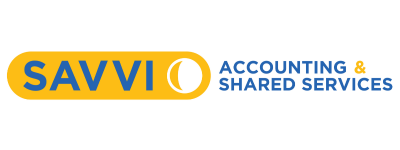
Are you a registered freelancer?
Are you well aware of the tax responsibilities that come with this job position?
After the recent pandemic, the industry is slowly welcoming more freelance workers. In fact, recent studies show that the country’s freelancer market is growing steadily.
And being a freelancer has its perks and advantages, such as flexibility in time, higher income, and more freedom.
But as a registered freelancer, you still hold huge responsibilities on your shoulders, and one of these is your responsibility to pay tax fees. Remember that it doesn’t matter whether you’re actively earning money or not – you still need to file your taxes.
This is because, like any other business in the country, filing your taxes keeps you out of trouble, and contributes to the country’s economy. Here are many other reasons why you should pay your taxes.
So to start with, you need to learn the basics of freelance tax. Here are some things about freelance tax you must keep in mind as a freelance worker:
1. Tax exemptions for self-employed tax cases
The Bureau of Internal Revenue (BIR) created new guidelines following the pandemic. And this is mainly for the benefit of self-employed individuals.
These guidelines state that some self-employed tax cases are available for tax exemption, such as:
- Those earning minimum wage
- Those whose gross income is below Basic Personal Exemption (Php 50,000 below) and Additional Personal Exemption (Php 25,000 per child dependent)
- Those whose annual salary from their employer is Php 60,000 and below
So if you’re not any of these above-mentioned pointers, and you’re just thinking of evading your taxes for personal and political reasons, then you should think twice. Penalties for tax evasion can cost you your business!
2. Freelance business structures in the Philippines
There are two different freelance service categories your business or occupation may fall under, which may be 1.) Professional or 2.) Single or sole proprietor.
Virtual assistants, graphic designers, and content writers fall under the professional category. On the other hand, single or sole proprietors are those who sell baked goods, cater food, and sell clothes.
Basically, a sole proprietorship is a type of business owned and controlled by only one person. Professionals are those who earn money by practicing their profession with or without a license.
Remember that freelance services that fall under any of these two categories do not require a Mayor’s Permit or Barangay Clearance to operate.
3. Paying your taxes
After familiarizing yourself with those above, such as your business’ identity, you must first file your taxes. You can visit the BIR website for more information on this.
If you don’t have a Tax Identification Number or TIN, visit the nearest Regional/District Office (RDO) near you and fill out the BIR Form 1901 (Application for Registration). Don’t forget to bring the necessary documentary requirements such as:
- Birth certificate
- Community Tax Certificate or Sedula
- BIR Form 1901 for the registration of self-employed professionals
- Mayor’s Business Permit (photocopied, if applicable)
- Occupational Tax Receipt (if applicable)
- Professional Tax Receipt (if applicable)
- Marriage Contract (if applicable)
- Contract or Company Certification (if applicable)
But if you already have a TIN, you should fill out the BIR Form 1905 (Application for Registration Information Update). Afterward, you will be required to pay the annual registration fee of Php 500 at the New Business Registrant Counter in the BIR Office.
And then you’re all set – the RDO will issue the Certificate of Registration (Form 2302), Notice to Issue Receipt, Authority to Print, and BIR Printed Invoices.
4. Taxes freelancers must file and pay
Have you registered yourself as a self-employed individual? Did you submit the necessary documents and forms?
After being registered as a freelance worker, you need to pay the taxes applicable to your freelancer status, such as:
- Annual registration tax – This is due every January 30th of every year, costing Php 500. This needs to be completed every time they pay their taxes that don’t have a tax return.
- Monthly percentage tax – This is due every 20th of the month and makes up 3% of your gross revenue. This is for VAT-registered businesses and self-employed/mixed-income individuals.
- Quarterly income tax – This is due every 25th of the last month of every quarter. This is for self-employed and mixed-income individuals with gross annual sales not exceeding Php 3 Million.
- Annual income tax – This is based on BIR’s graduated income tax rate table or the 8% preferential tax rate. Those whose total gross exceeds Php 3 Million, they’re limited to the graduated income tax rate table. If it doesn’t, then they can use the graduated income tax rate table or the 8% preferential tax rate.
How To Properly File Your Taxes
It’s no secret – working as a freelancer is something to brag about. You work on your own accord, you enjoy the flexibility you’re granted, and you get the money you deserve from working in your profession.
However, as a freelancer, you also have to deal with taxes on your own. As a law-abiding worker, you need to work on it and make sure you’re not evading your lawful duty as a citizen.
But filing taxes can be made easier with the help of the right professionals.
You need the perfect companion for dealing with your taxes. Savvi Accounting and Shared Services specializes in helping freelancers file for their taxes and set up their government contributions among other things.
Settle your government dues and stay on top of your responsibilities without worry.
Get a free service quotation today by calling us at +63917-174-7277 and savviacctg@gmail.com
